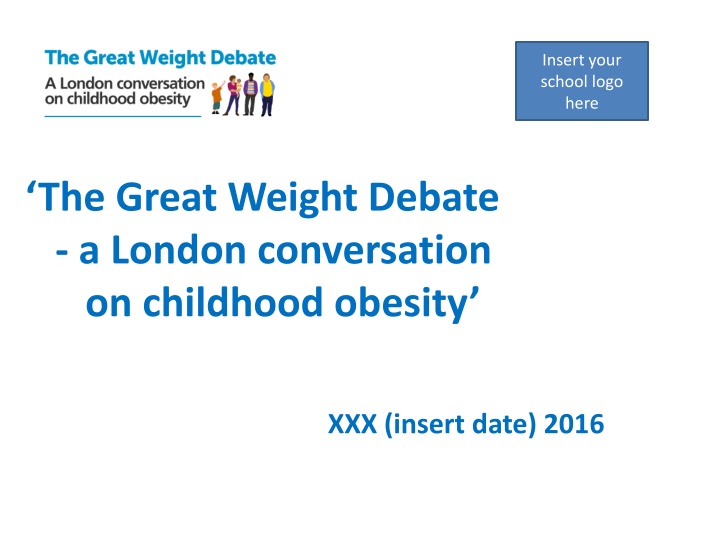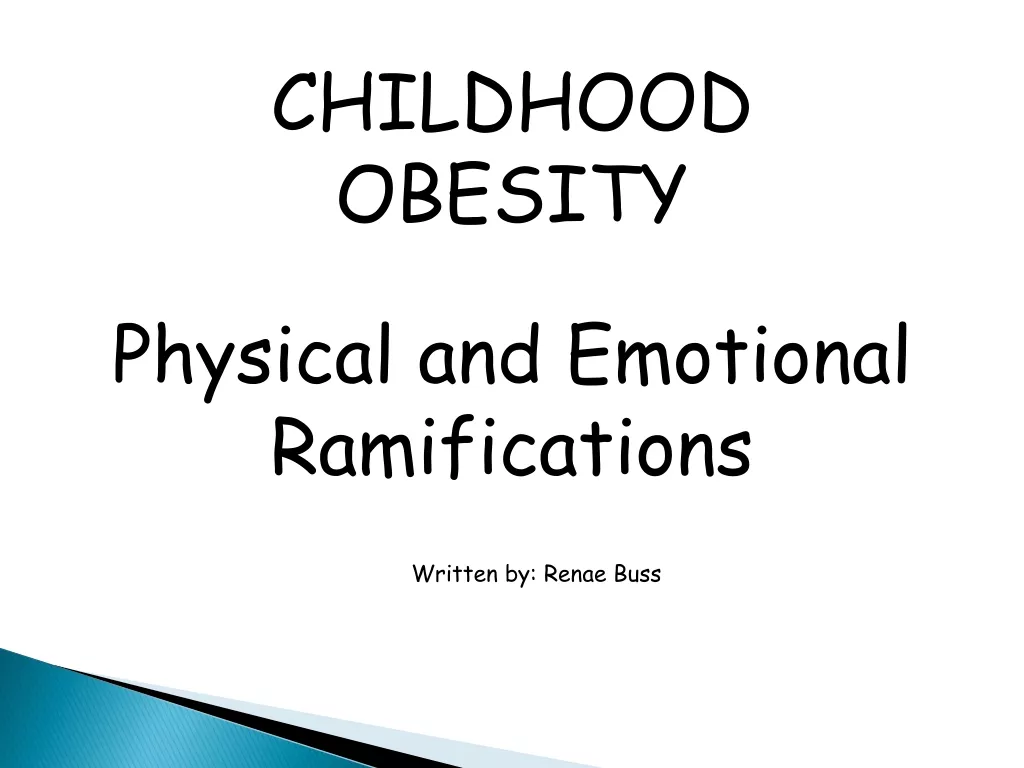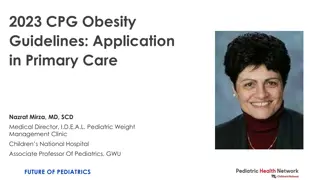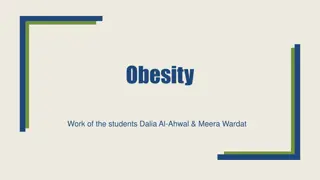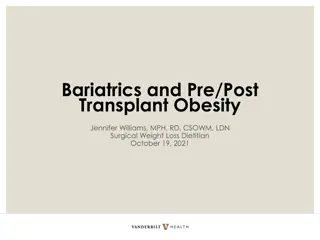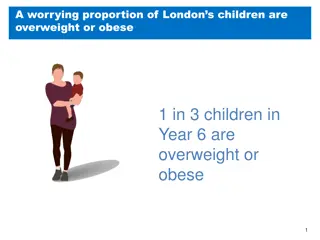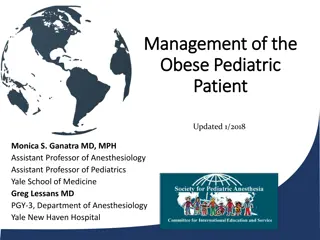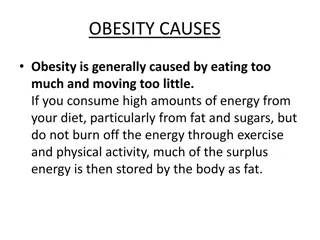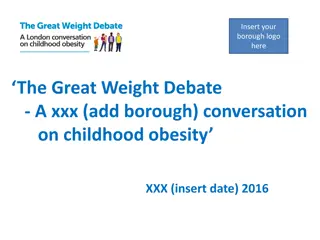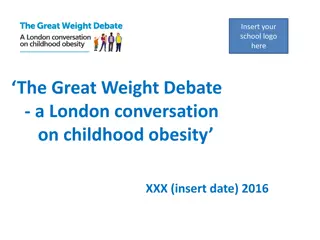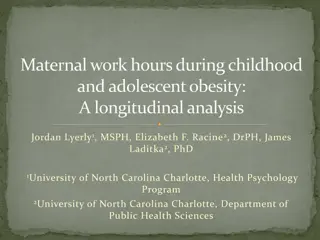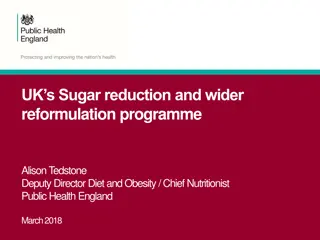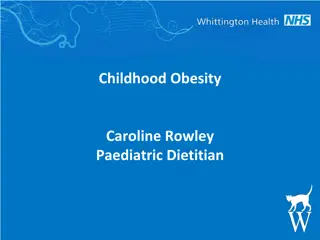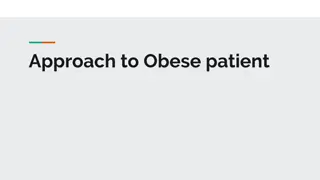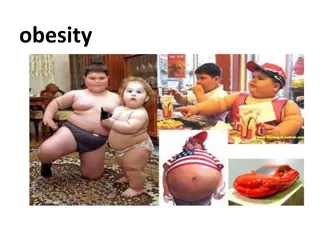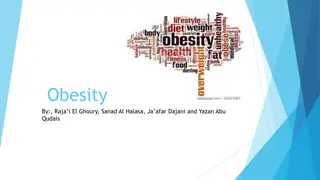The Great Weight Debate: London's Childhood Obesity Crisis
London faces a significant challenge with childhood obesity, surpassing global cities in overweight and obese children. This issue poses serious health risks and societal repercussions, exacerbated by environmental factors like unhealthy food availability and sedentary lifestyles. Understanding the root causes and implications is crucial in addressing this pressing public health concern.
Download Presentation

Please find below an Image/Link to download the presentation.
The content on the website is provided AS IS for your information and personal use only. It may not be sold, licensed, or shared on other websites without obtaining consent from the author.If you encounter any issues during the download, it is possible that the publisher has removed the file from their server.
You are allowed to download the files provided on this website for personal or commercial use, subject to the condition that they are used lawfully. All files are the property of their respective owners.
The content on the website is provided AS IS for your information and personal use only. It may not be sold, licensed, or shared on other websites without obtaining consent from the author.
E N D
Presentation Transcript
Insert your school logo here The Great Weight Debate - a London conversation on childhood obesity XXX (insert date) 2016
Why we need to talk about childhood obesity London has more overweight and obese children than any other global city, including New York, Paris and Madrid More than a third of children are overweight or obese by the time they leave primary school Children who are obese or overweight are at increased risk of a range of physical and mental health problems Evidence from around the world shows that we are living in an abnormal environment where is it easier to put on weight rather than maintain a healthy lifestyle
Obese children are at risk of: Health problems, including high cholesterol, high blood pressure, diabetes, bone and joint problems, breathing difficulties Emotional and behavioural challenges Increased risk of stigmatisation, bullying and low self esteem Increased absence from school, which can affect their learning Obese children are also at increased risk of becoming overweight adults. Obese adults are: less likely to be in employment at increased risk of discrimination and stigmatisation at increased risk of hospitalization
Our abnormal environment Most experts agree that childhood obesity is caused by a combination of environmental and social factors: Widespread availability of cheap, high calorie food, for example fast food outlets and fizzy drinks Larger portion sizes than in the past Marketing of unhealthy foods to children Confusion among parents about what the healthiest food options are for their children Lack of understanding in society generally of what a normal weight is for a child City environment that discourages walking and cycling.
Did you know? There are around 8500 fast food shops in London The average chicken shop meal of chicken, chips and a drink contains 70% of an adult s daily calories On average, 11 to 18 year olds consume three times more than the recommended amount of sugar every day The average child in England spends six hours a day in front of a screen Only 28 per cent of children in England achieve the recommended activity levels
Changing our environment Whilst we make choices about what we eat, and what we feed our children, these choices are affected by the environment in which we live. Therefore, although some of the things we need to do to reverse London s childhood obesity epidemic involve people changing their lifestyles, most of them involve changing our environment. This will include making changes at a community level, at local authority level, a London-wide level and at a national level.
Aims of the Great Weight Debate Raise awareness of the scale and causes of the childhood obesity epidemic in London Gather thoughts and ideas from all Londoners about how to help our children lead healthier lives, including: What barriers prevent children and young people from being healthy in their communities? How can children and young people in London be supported to lead healthier lives? Galvanise action and a desire for change to reduce childhood obesity in London
Discussion session We would all like our children to be more active day to day - What would help this to happen? How could we make walking and cycling to and from places easier and more attractive? We all have sugary food and drink from time to time. What would help you or your family to eat and drink these less often? What would help you in a restaurant or takeaway shop to understand which food and drink options are healthier?
Discussion session We know that young people in London buy takeaway/ convenience foods quite often. What do you think would help young people to not buy as much unhealthy food and drink? When you or your family are out and about what influences the food and drink that you buy? What would help you or your family eat healthier? Many of us have times when we would like to lose weight are there things that would help you or your child to maintain a healthy weight?
Other ways you can get involved in the Great Weight Debate Take the Great Weight Debate survey at: http://gethealthy.london/greatweightdebate Encourage family and friends to complete the survey Share your thoughts on twitter #greatweightdebate Learn more about the scale and causes of London s childhood obesity epidemic at: http://gethealthy.london/greatweightdebate
Small steps make a big difference Be aware of how the environment affects your choices: Avoid super-sized drinks, crisps and chocolate Avoid buying buy one, get one free deals if the food isn t healthy Try and cut down on the number of take-aways you consume Always check food labelling, particularly on processed foods
Thank you for joining the London conversation on childhood obesity #greatweightdebate
